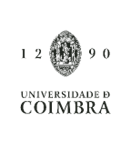SusTrainable Dissemination Event
Organizers: Ana Oprescu - University of Amsterdam Zoltan Porkolab - Eotvos Lorand University


Sustainability as a key driver for the development of modern society and the future of the planet has never achieved as much consensus worldwide as today. Experts estimate the energy consumption share of the ICT domain at 6-9% and expect this share to grow to 10-20% by 2030. It is anticipated that the energy consumed by the ubiquity of ICT services and devices in a globally connected world and our digital lifestyle in general will soon have a bigger impact on global warming than the entire aviation industry. In other words ICT is part of the solution but also part of the problem in terms of sustainable global development including any political aspirations towards stopping climate change. Ultimately, it is the hardware of ICT systems that consumes energy, but it is software that controls this hardware. Thus, controlling the software is crucial to reduce the ever-growing energy footprint of ICT systems.
The SusTrainable project advocates the introduction of all facets of sustainability as a primary concern into software engineering practice. This project aims to actively promote educating the next generation of software engineers to consider sustainability in all aspects of the software engineering process: SusTrainable means Training for Sustainability. We aim to provide future software engineers with essential skills to develop software that is not only functionally correct, but also easy to maintain and evolve, that is durable, has a low impact and uses the hardware it is running on in the most energy-efficient way.
In this workshop the project members will present the results of the project.
Important Dates
| Event Day | 28th August, 2023 |
|---|
Schedule
Keynotes
Thoughts from a decade of software energy consumption research
Abram Hindle
University of Alberta, Canada
In this presentation Abram Hindle will discuss:
- his current and past experiences with software energy consumption;
- his vision of where the field is probably headed;
- his suggestions for avenues to avoid and avenues to investigate in the field.
ABSTRACTS
Energy-aware scheduling and mapping with the TeamPlay coordination language
Clemens Grelck
Friedrich Schiller University Jena, The Netherlands
We present the exogeneous coordination language TeamPlay that introduces energy and time as first-class citizens into the software engineering process while at the same time enforcing a stringent separation of concerns between operational detail and application-level design. Following an introduction to the design and implementation of the TeamPlay coordination language, the presentation focusses on our tailor-made energy and time-aware scheduling and mapping heuristics.
Sustainable Behaviour of IT Practitioners: comparative analysis
Elena Somova, Denitza Charkova
The university of Plovdiv, Bulgaria
Teaching Sustainable Task-Oriented Internet of Things Programming
Mart Lubbers, Pieter Koopman
Institute for Computing and Information Sciences,
Radboud University, Nijmegen, The Netherlands
{pieter,mart}@cs.ru.nl
Code optimization for sustainability for data mining applications
Anikó Kopacz, Zalán Bodó, Lehel Csató
Babes-Bolyai University, Cluj, Romania
We presented cases when the problems had an algebraic solution and could be solved using vectorization – within the Python environment – and compared solutions to information extraction from graph-data written in Python and Julia. Our experiments confirmed that the – LLVM – compiled versions of the code were much faster, meaning that they consumed less energy. Topped with the fact that the Julia code is closer to the mathematical modeler, we suggest that with compilation and vectorization the development of applications extracting information from large data corpuses are more sustainable.
Comparing Sustainability of Using Formik and PureScript Form Validation in a React-TypeScript Web Application
Csaba Szabó
Technical University of Košice, Slovakia
Code comprehension for large project sustainability
Zoltán Porkoláb
Eötvös Loránd University, Faculty of Informatics, Hungary
Empirical Performance Analysis of Android applications
Rui Rua, João Saraiva
University of Minho, Braga, Portugal
Efficient Evolutionary Computing
Goran Mauša
University of Rijeka, Faculty of Engineering
University of Rijeka, Center for Artificial Intelligence and Cybersecurity, Croatia
System specifications and abstract implementations for sustainable design decisions
Li Jianhao
Eötvös Loránd University, Faculty of Informatics, Hungary
Tweets by @iflsymposium